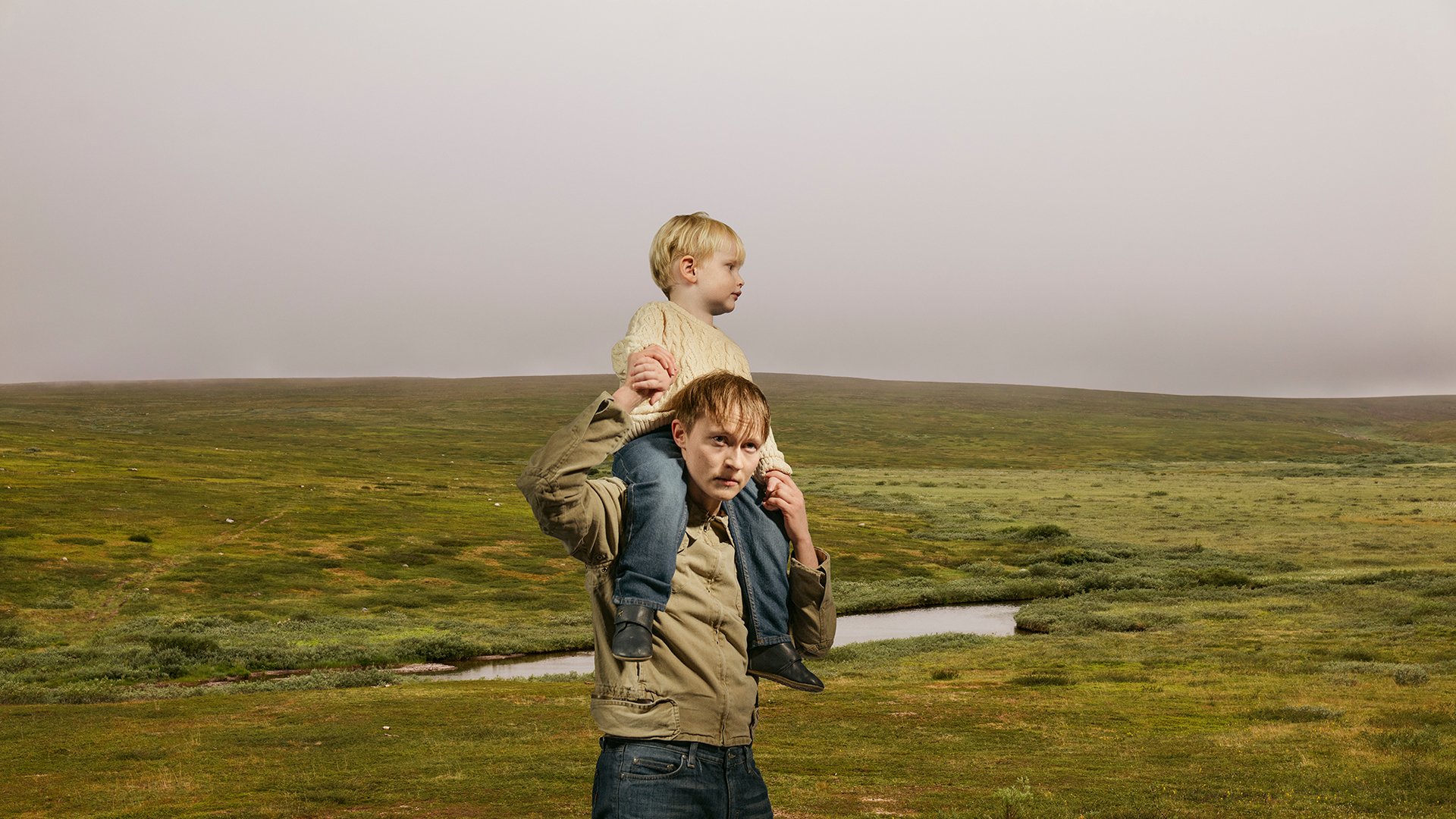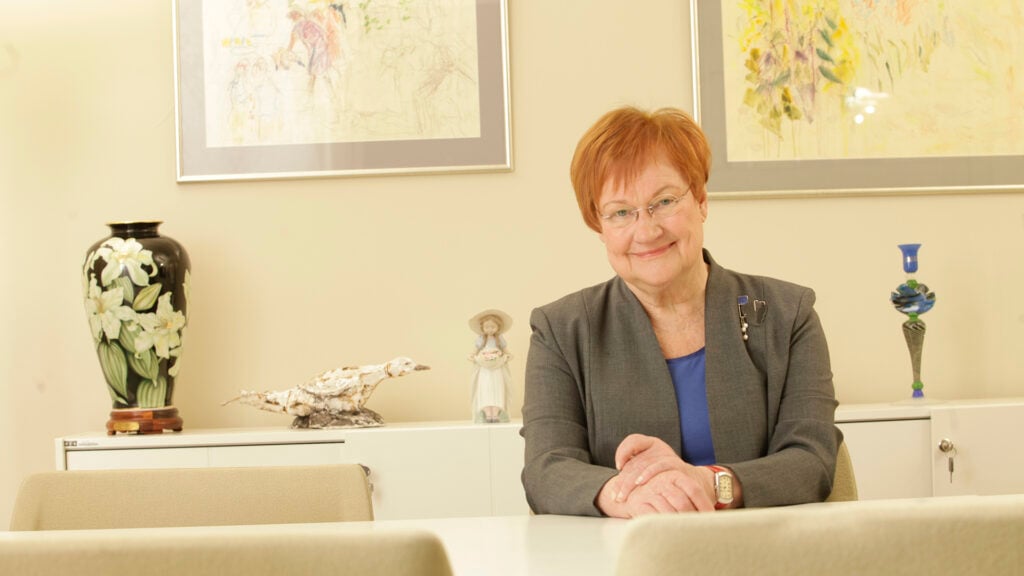Ovllá is the first full-length opera ever premiered in Finland in the Northern Sámi language. At its core, it explores identity, shame, and the legacy of silence — and above all, how language and culture can reconnect with our roots.

When writer Siri Broch Johansen / Juho-Sire, who lives by the Teno River, talks about Ovllá, her voice softens. The subject is deeply important and personal to her.
“For me, this is not just an opera. The story mirrors my own life, and that of so many other Sámi people“, says Johansen, who wrote the libretto for Ovllá.
She grew up as a Sámi who spoke Norwegian, without a connection to her own language.
“I learned Sámi as an adult, and it completely changed my life. I realized how profoundly language, and its loss, can affect a person’s identity“, she explains.
The story of Ovllá grew from Johansen’s desire to explore the inherited legacy of shame and silence — an experience shared by many Sámi of her generation.
“I wanted to show what happens when a person loses their connection to their roots, and how words and songs can restore it. We must dare to speak, or the silence will continue“, Johansen says.
An Important Theme
The grand-scale Ovllá production is created in collaboration with Oulu Sinfonia, the Sámi National Theatre Beaivváš, and the Oulu2026 European Capital of Culture project. The world premiere takes place on January 16, 2026.
The opera will be performed in Northern Sámi and Finnish. The work will be subtitled in Finnish, Northern Sámi, Inari Sámi, Skolt Sámi, and English, and it features seven soloists, five of whom are Sámi singers and joikers.
According to Alma Lehmuskallio, Artistic Director of the Oulu Theatre, the idea emerged after she became familiar with the report of Norway’s Sámi Truth and Reconciliation Commission. From that grew the concept of an opera that would highlight the intergenerational oppression experienced by the Sámi people.
“As a theatre, we have an obligation to address sensitive and controversial issues concerning minorities. On the main stage, we have the greatest resources and opportunities to make an impact. Opera as an art form has a very colonial and patriarchal history, and with this work, we do not wish to repeat that“, Lehmuskallio explains.
Who Is Ovllá?
The opera Ovllá tells the story of the assimilation policies targeting the Sámi people, and of how a child is separated from their parents and forced into a boarding school, where they encounter a foreign language and culture.
The main character, Ovllá, is a fictional victim of assimilation policy — a person who has lost his roots and is trying to forget who he is.
“The shame around one’s language experienced in childhood, and the shadow of colonization, are passed down from generation to generation. Silence and shame become part of Ovllá’s identity as well“, explains writer Johansen.
As a result of systematic discrimination by the state, the man fears and feels ashamed of his background, which leads him to avoid speaking Northern Sámi to his own daughter.
“For Ovllá, and for many Sámi, silence begins when people are stripped of their language and connection to their culture. That is the legacy of colonialism, one we still carry in our bodies“, Johansen says.
In the end, love awakens the protagonist to face his past and rediscover himself.
Yoik and Opera Share the Stage
The music for Ovllá is composed by Cecilia Damström, with yoiks by Emil Kárlsen, and directed by Heta Haanperä.
In the music, the Sámi joik tradition meets the forms of Western opera: a combination that is rare, even unique, on this scale. This marks the first time in Finland that a full-length opera in Northern Sámi will have its world premiere.
“What’s captivating about theatre is how a single work can educate, move, and entertain all at once. Something very special, personal, and even painful can become visible and shared“, Lehmuskallio reminds us.
The opera’s soundscape weaves together the sounds of nature, silence, and yoik with the orchestra. The orchestra is Oulu Sinfonia, conducted by its chief conductor Rumon Gamba and Aku Sorensen, artistic director of the Luosto Soi! festival.
Johansen says it is precisely this meeting of different art forms and cultures that makes the work special:
“Yoik and opera share the stage. It’s a meeting where reconciliation is possible, and perhaps a glimmer of hope appears as well.“
Where History Meets the Present
Although Ovllá is a fictional character, his experiences are real, and have happened to someone in the Sámi regions of Finland, Sweden, Norway, or Russia. The opera wants to ask: Can a person stop forgetting, and choose to remember?
With Ovllá, Oulu Theatre’s main stage becomes a space where history and the present meet. The work not only tells of Sámi experiences but challenges Finnish society to face its own past.
“I hope the Finnish audience takes this to heart. This is the Sámi people’s experience, but it is also part of Finland’s story“, Johansen says.
Oulu is the European Capital of Culture for the year 2026. Ovllá is part of the Oulu2026 cultural programme and cultural climate change.



